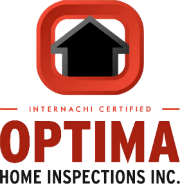Mold might seem like a minor concern at first glance, but when ignored, it can snowball into a significant problem, endangering both health and property value. Mold inspection is an essential step in safeguarding your investment, whether you’re buying a new property or maintaining your current one. Let’s explore how conducting a mold inspection can be a game changer for your investment.
1. Identifying Hidden Mold Problems
Mold can lurk in unseen places, like behind walls or under floors. A professional inspection can uncover these hidden threats, preventing costly future repairs.
In some cases, mold is present long before it becomes visible on walls or ceilings. This silent growth can take root in your HVAC system, spreading spores throughout the house and decreasing air quality without noticeable signs. Hiring a proficient inspector ensures a thorough examination using advanced tools like infrared cameras and moisture meters, which can detect mold in its infancy, well before it becomes a visible and more significant issue.
2. Ensuring Health and Safety
Mold spores can pose serious health risks, including respiratory issues and allergies. Regular inspections help ensure a safe and healthy living environment.
Part of ensuring health and safety is staying informed about the various types of mold and their potential impacts. According to the Centers for Disease Control and Prevention, exposure to mold can lead to nose stuffiness, throat irritation, coughing or wheezing, eye irritation, or skin irritation in some cases. More severe reactions can occur in people with underlying health conditions or allergies. Regular mold inspections can identify risky areas, leading to more definitive remedial actions.
3. Preventing Structural Damage
Unchecked mold can weaken your property’s structure over time. Identifying mold early can stop the damage from spreading, saving you from expensive repairs.
Mold does not just affect what you see. Under the surface, it can soften and decay wood, erode drywall, and contribute to rot in structural supports. An unnoticed mold infestation can undermine the stability of your home, leading to hefty structural repairs down the line. It’s akin to termites eating away at the inner structural wood, quietly reducing your property’s durability and lifespan. This is why the phrase ‘catch it while you can’ rings particularly true with mold. Prevention through inspection is key.
4. Preserving Property Value
A mold-free home is more attractive to potential buyers. Regular inspections help maintain your property’s value by ensuring it’s in top condition.
In real estate, first impressions are pivotal. A home free from the issues mold can cause makes it far more appealing to buyers, potentially enhancing the real estate value itself. A well-documented mold inspection history that showcases frequent evaluations can be a bargaining chip during negotiations, providing potential buyers peace of mind and a reassurance of the property’s condition. If you’re looking to sell, consider how being upfront about the mold-free status of your home could positively impact your asking price.
5. Addressing Moisture Issues
Mold often points to moisture problems. An inspection not only identifies mold but also helps pinpoint areas where moisture may be entering the home.
Moisture control is crucial in mold prevention. When an inspection reveals moisture intrusion points, it gives homeowners crucial information to address these vulnerabilities directly—the roof, windows, and plumbing systems. Sealing these entry points prevents not only mold but helps in energy conservation and maintaining a comfortable internal environment. Fixing leaks and ensuring proper ventilation are some effective strategies to keep your home mold-free.
6. Reducing Long-term Costs
Early mold detection can lead to cheaper remediation. Addressing mold problems promptly prevents them from escalating into more extensive and costly repairs.
Financially speaking, mold inspections are a worthy preventive measure. Minor symptoms of mold can escalate into major renovations and replacements, whether it’s repairing water-damaged drywall or replacing wooden structures. Early identification not only reduces the extent of repairs but also the associated costs. By catching mold issues early, you significantly lower the risk of costly surprises down the road.
7. Protecting Your Investment
Mold can devalue your property if not addressed. Routine inspections safeguard your investment by ensuring your property remains mold-free and in excellent condition.
For many, purchasing a home is the most significant investment they will make. Keeping it mold-free is not just about preserving the money you’ve put into it but also about ensuring its future value. A home maintained through regular inspections is not only easier to sell but fetches a more competitive price, safeguarding your original investment and amplifying it over time. It’s about taking proactive rather than reactive steps, reminding ourselves that prevention is always better than the cure.
8. Enhancing Air Quality
Mold affects indoor air quality, which can impact health and comfort. Inspections help maintain high air quality by identifying and eliminating mold sources.
Comfort isn’t just about temperature; it’s also about the quality of the air you breathe. Mold spores contribute to poor air quality, potentially exacerbating health conditions like asthma or inducing allergies. Homeowners can revitalize their indoor atmosphere by understanding and addressing hidden mold issues identified during regular inspections. Clean, breathable air is both an investment in health and the livability of your home.
9. Facilitating Smooth Property Transactions
For sellers, providing proof of a mold inspection can expedite the sale process and reassure buyers. For buyers, it’s an assurance of a sound investment.
10. Meeting Legal Requirements
Some areas require mold inspections for property sales. Staying compliant with local laws prevents legal hurdles during transactions.
Navigating property transactions often involves numerous legal stipulations. In certain regions, failing to conduct or disclose a mold inspection can result in delays or legal complications during sale proceedings. Understanding local legal requirements around mold mitigation and performing due diligence avoids these potential roadblocks. When buying or selling a property, staying ahead of legal obligations with regular inspections is always recommended.
11. Protecting Tenants and Rental Income
For landlords, ensuring a mold-free property safeguards tenant health and protects rental income, reducing the risk of rent disruptions or legal issues.
As a landlord, maintaining a safe living space for tenants ensures compliance with health standards and also minimizes tenant turnover. When tenants feel comfortable and secure in a mold-free environment, it leads to longer tenancy periods, stable rental income, and fewer disputes over living conditions. This forethought helps bypass potential revenue losses and legal entanglements rooted in neglecting mold issues.
12. Providing Peace of Mind
Regular mold inspections provide peace of mind, allowing property owners to rest easy knowing their investment is safe from hidden dangers.
Beyond the tangible benefits, one of the most valuable aspects of regular mold inspection is the peace of mind it provides. Knowing with certainty that there are no mold issues lurking behind the walls or beneath floors lets homeowners focus on enjoying their space without fear or uncertainty. It’s the knowledge that you’ve done everything possible to protect your investment and your family’s well-being that truly makes a difference.






